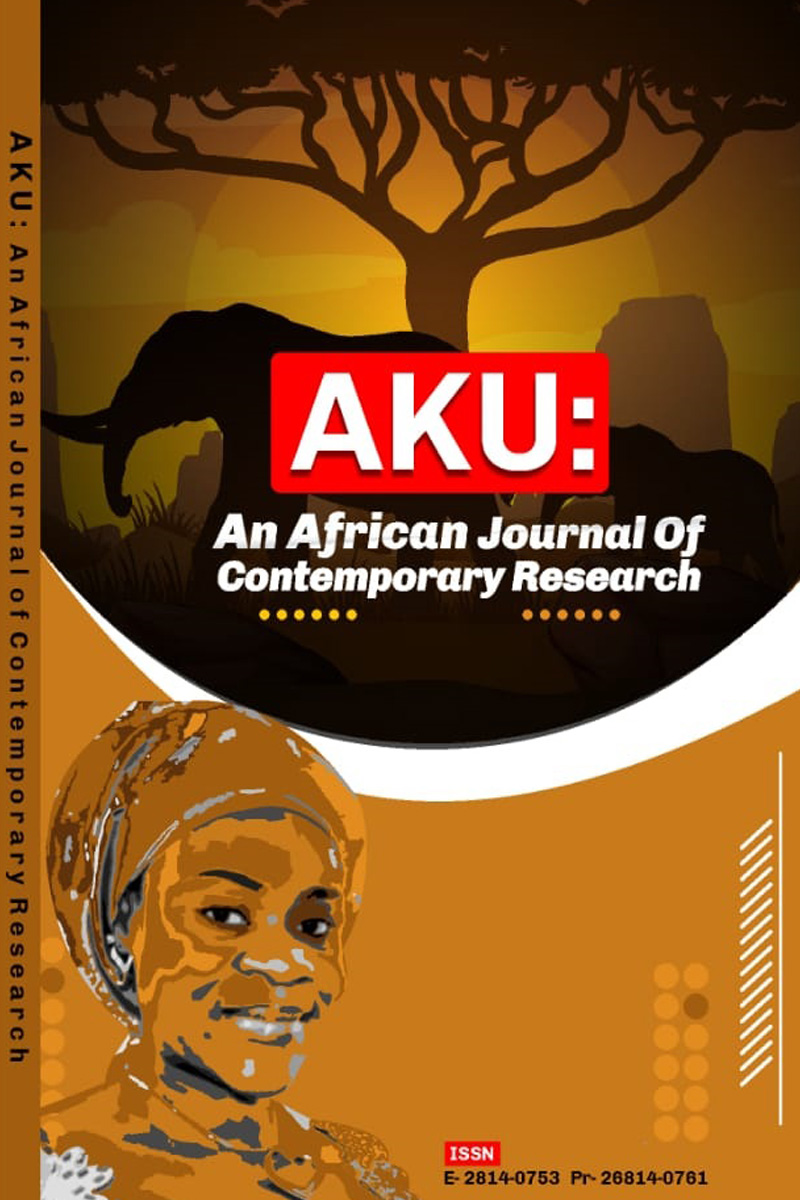 AKU - An African Journal of Contemporary Research (AAJCR) (Vol. 1 No. 1, 2020)
ALI DEITY AMONG THE EVO PEOPLE: TOWARDS AN INDIGENOUS ECOLOGICAL KNOWLEDGE SYSTEM
AKU - An African Journal of Contemporary Research (AAJCR) (Vol. 1 No. 1, 2020)
ALI DEITY AMONG THE EVO PEOPLE: TOWARDS AN INDIGENOUS ECOLOGICAL KNOWLEDGE SYSTEM
ABSTRACT
The phenomenon of eco-spirituality is an experience of global concern. This is the reason for review on its decline in modern times. The review of the spirituality of the ecosystem in Evo indigenous religion as it concerns Ali deity cannot be overemphasized. This is because the influence of modernization, commercialization and industrialization has severely impacted on African religion, thereby causing a decline in the concept of the land not just as matter but a deity. There are misuses of land such that its production and sustenance of human person is fast depreciating; this is because the indigenous religious prohibitive rules that regulate the use of the environment have been abandoned. The review showed that eco-spirituality was enhanced in the pre-modern era when the indigenous religious ritualistic practices of venerating and worship of Ali deity was carried out. Therefore, methods for regulating land misuse were employed following the indigenous religion, and this demonstrated that the spirituality of the Ali was a major part of the eco-spirituality of the time. Following the different challenges on the spirituality of the ecosystem, it is recommended that the indigenous religious environmental conservatory measures should be used in modern society so as to allow room for diversity. The cultural or traditional method can help restore a balanced of ecospirituality for a sustainable development. Phenomenological method of research was used to discussion the challenges of the decline in eco-Spirituality in Evo.

